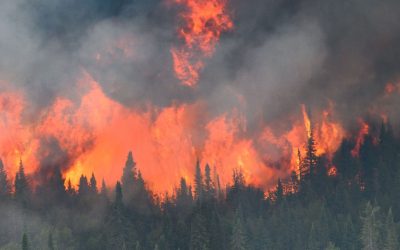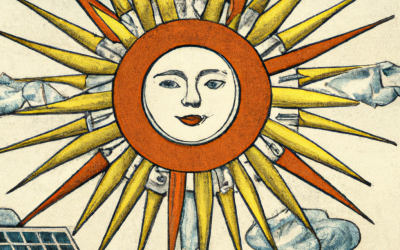Winnipeg/Lowe Farm – The North American environmental movement has lost its compass, and the misinformation many of its groups are spreading is costing millions of lives in third world countries, said author and former environmentalist Paul Driessen, to crowds attending meetings sponsored by the Frontier Centre, in Winnipeg and Lowe Farm, on Thursday, December 9.
By denying developing nations access to inexpensive pesticides, biotechnology, and hydro-electricity, influential environmental voices such as Greenpeace and the World Wildlife Fund are making it virtually impossible for people in the third world to break out of their cycles of poverty, said Driessen, the author of Eco-Imperialism: Green Power Black Death.
“It’s not ethical, responsible or compassionate,” said the former member of the Sierra Club and Zero Population Group.
Environmental groups have been effective in keeping pesticides such as DDT, which controls malaria-spreading mosquitoes, off the international market for over 30 years, despite research that shows the product poses no risk to human health, said Driessen.
“Each year, 300 million people contract malaria, and 2 million die,” he said. Most are children and pregnant women living in sub-Saharan Africa. Several million more succumb to secondary illnesses including typhus, tuberculosis, and dysentery. He contends the suffering is unnecessary because a twice-yearly application of DDT to the walls and roofs of thatched homes would effectively control the mosquito population.
“DDT can reduce rates of malaria by as much as 80 per cent,” he said.
Driessen was critical of what he views as the “hypocrisy” of the environmental movement. North Americans no longer have to worry about malaria because of their own heavy use of pesticides, during the first half of the century. It is wrong to deny developing nations the same products that have improved the quality of life on this side of the ocean, he said.
Driessen noted fears about biotechnology are also unfounded, given the volume of gene-altered foods that have already found their way into the North American food chain.
“We’ve consumed over one trillion servings of genetically spliced foods in the US, and we’ve not had a single casualty,” he said.
He said developing nations stand to benefit from the use of genetically modified crops. Two hundred million children suffer from Vitamin A deficiency, which blinds up to 500,000 of them every year. The use of genetically modified Golden Rice, rich in beta-carotene, could solve the problem, but Driessen says efforts to promote the crop are the target of a $45 million per year environmental ad campaign.
He was also critical of other environmental pressures, opposing the construction of hydro-electric dams. Without electricity, he said, residents are forced to use wood as their primary source of fuel, resulting in a growing deforestation problem.
“The message from the third world is graphic, [and] it’s new to a lot of people” said Peter Holle, president of the Frontier Centre, the organization which sponsored Driessen’s presentation. “We need to be rational and use science to look at the facts,” he said.
Jon Tiessen is a freelance agricultural writer and broadcaster with a Diploma in Agriculture. He has written and produced stories for several local, regional and national broadcasters and publications.


